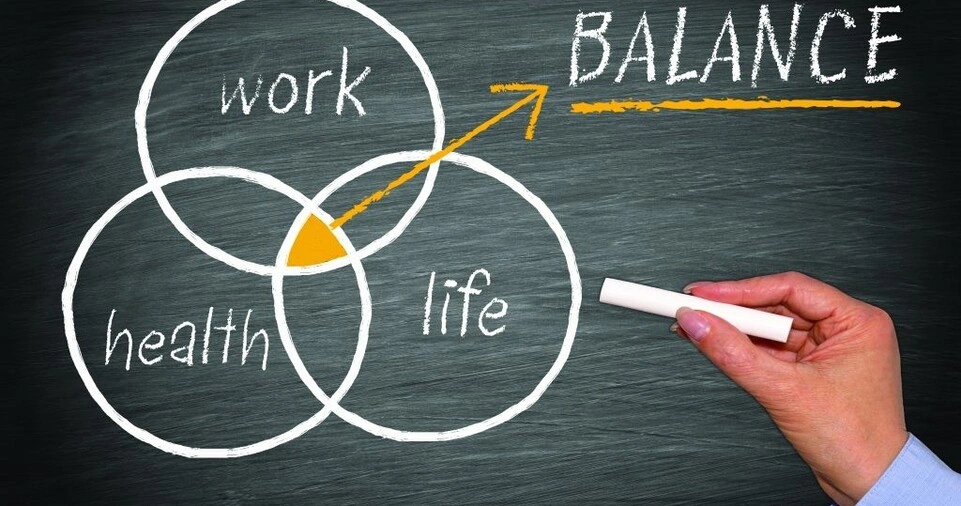In today’s fast-paced world, balancing work and health has become more challenging than ever.
The constant demands of work, deadlines, meetings, and personal commitments often leave little time for self-care.
However, neglecting health in pursuit of career growth can have long-term consequences, including burnout, reduced efficiency, and even serious health issues.
Maintaining a healthy work-life balance is not just about staying physically fit; it also involves mental well-being, emotional stability, and effective time management.
Striking this balance can lead to improved productivity, better decision-making, and enhanced overall well-being.
When health and work are in harmony, individuals can achieve sustainable success without compromising their physical and mental wellness.
This guide explores detailed strategies to integrate healthy habits into a busy work routine while maximizing productivity.
By implementing these practices, you can create a lifestyle that supports both professional success and personal well-being.
Prioritize Sleep for Optimal Performance
Why Sleep is Crucial for Productivity
Sleep plays a fundamental role in cognitive function, memory retention, and overall productivity.
When you don’t get enough rest, your ability to focus, make decisions, and solve problems declines.
Poor sleep is linked to decreased creativity, slower reaction times, and an increased likelihood of making errors.
Chronic sleep deprivation can also lead to health issues such as obesity, heart disease, and weakened immunity.
Tips for Better Sleep
- Stick to a Sleep Schedule: Try to go to bed and wake up at the same time every day, even on weekends.
- Create a Restful Environment: Keep your bedroom dark, quiet, and at a comfortable temperature.
- Limit Screen Time Before Bed: Reduce exposure to blue light from phones and computers at least an hour before sleeping.
- Avoid Caffeine and Heavy Meals Late at Night: These can disrupt your ability to fall and stay asleep.
- Practice Relaxation Techniques: Meditation, deep breathing, or reading a book can help signal your body that it’s time to sleep.
When you prioritize sleep, you’ll wake up feeling refreshed, energized, and ready to tackle the day’s challenges with increased efficiency.
Maintain a Healthy Diet for Sustained Energy
The Role of Nutrition in Workplace Performance
What you eat directly impacts your energy levels, mood, and ability to focus.
A poor diet consisting of processed foods, excessive sugar, and unhealthy fats can lead to sluggishness, mood swings, and low productivity.
On the other hand, a balanced diet fuels your brain, enhances concentration, and keeps you energized throughout the day.
Healthy Eating Tips for a Productive Workday
- Start Your Day with a Nutritious Breakfast: Eating a protein-rich breakfast helps maintain stable energy levels.
- Incorporate Whole Foods: Choose whole grains, lean proteins, healthy fats, and plenty of fruits and vegetables.
- Stay Hydrated: Dehydration can cause fatigue and brain fog, so aim to drink at least 8 glasses of water daily.
- Avoid Excessive Sugar and Caffeine: While coffee and sugary snacks provide an initial boost, they often lead to energy crashes.
- Plan Your Meals and Snacks: Preparing healthy meals in advance prevents reliance on fast food and unhealthy snacks.
By making mindful food choices, you can sustain energy levels and enhance productivity throughout the workday.
ALSO READ: How to Start Investing with Little Capital
Incorporate Regular Exercise into Your Routine

How Exercise Boosts Work Performance
Exercise is not just for physical fitness—it also has significant cognitive benefits. Regular physical activity enhances blood flow to the brain, increases energy levels, and reduces stress.
Employees who engage in regular exercise report higher focus, better problem-solving skills, and improved overall job performance.
Simple Ways to Stay Active Despite a Busy Schedule
- Take Short Walks: Even a 10-minute walk during breaks can improve circulation and boost energy.
- Use a Standing Desk: Alternating between sitting and standing helps prevent stiffness and promotes better posture.
- Stretch at Your Desk: Simple stretches can relieve tension in the neck, shoulders, and back.
- Exercise Before or After Work: Whether it’s yoga, jogging, or strength training, making time for exercise is crucial for long-term well-being.
Physical activity enhances mental clarity, helping you perform better at work while maintaining good health.
Take Breaks to Refresh Your Mind
The Science Behind Taking Breaks
Working for long hours without breaks can lead to mental exhaustion, decreased focus, and lower efficiency.
The brain needs periodic rest to function optimally. Studies show that taking short breaks increases creativity, prevents burnout, and enhances overall productivity.
Effective Break Strategies
- The Pomodoro Technique: Work for 25 minutes, then take a 5-minute break to refresh your mind.
- Step Away from Screens: Give your eyes a break from digital screens by looking at distant objects or stepping outside.
- Engage in a Different Activity: Read a book, listen to music, or do a quick stretch during breaks.
- Socialize: A brief conversation with colleagues can improve mood and reduce stress.
By incorporating short breaks, you can maintain focus and efficiency throughout your workday.
Manage Stress Effectively

Why Stress Management is Essential
Chronic stress affects both mental and physical health.
It can lead to anxiety, depression, headaches, digestive issues, and even cardiovascular diseases.
Learning to manage stress is crucial for maintaining productivity and overall well-being.
Stress Management Techniques
- Practice Mindfulness and Meditation: Deep breathing and meditation can calm the mind and reduce stress levels.
- Prioritize Tasks: Organizing tasks based on urgency and importance prevents feeling overwhelmed.
- Develop Healthy Work Boundaries: Avoid taking work home and set clear limits on after-hours communication.
- Engage in Relaxing Activities: Reading, listening to music, or spending time in nature can help alleviate stress.
When stress is managed effectively, you’ll be more productive and able to handle challenges with a clear mind.
Set Realistic Goals and Prioritize Tasks
How Goal-Setting Enhances Productivity
Setting clear, achievable goals helps maintain focus and provides direction. Without proper goals, work can feel chaotic and overwhelming.
Strategies for Effective Goal-Setting
- Use SMART Goals: Ensure your goals are Specific, Measurable, Achievable, Relevant, and Time-bound.
- Break Large Tasks into Smaller Steps: Completing smaller milestones keeps you motivated.
- Use Productivity Tools: Apps like Trello, Notion, or Google Calendar help track progress.
- Review and Adjust Goals Regularly: Adapt to changing circumstances and reassess priorities as needed.
By setting realistic goals and organizing tasks efficiently, you can work smarter rather than harder.
ALSO READ: How to Create a Budget That Actually Works
Conclusion
Balancing work and health is not about sacrificing one for the other but about integrating both into a sustainable lifestyle.
By prioritizing sleep, maintaining a healthy diet, incorporating exercise, taking breaks, managing stress, and setting clear goals, you can enhance both productivity and well-being.
Small, consistent changes in your daily routine can lead to significant improvements in your work performance and overall quality of life.
Implement these strategies today and experience the benefits of a balanced, healthier, and more productive life.







